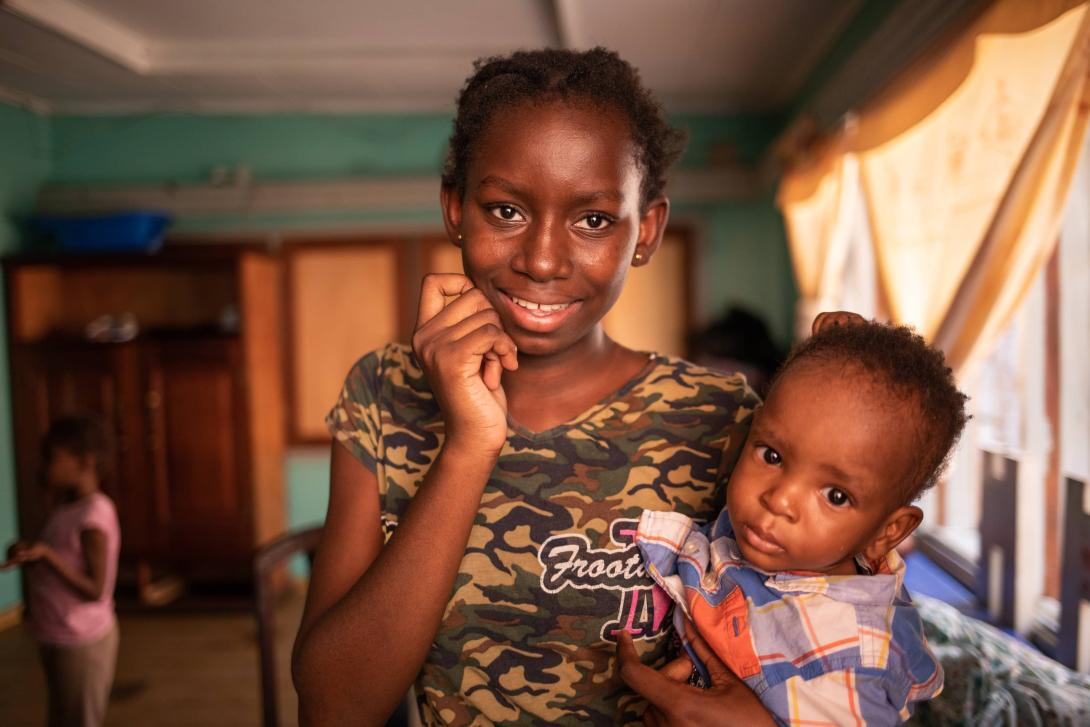
2023: Launch of the ADAC regional programme
This year we officially launched our new regional programme dedicated to children in street situations: the ADAC programme.

This year we officially launched our new regional programme dedicated to children in street situations: the ADAC programme.
ADAC is a programme of Actions Dedicated to children in street situations in Central Africa (ADAC in French). Together with our partners, we have been working in the region for several years to address this large-scale problem. Indeed, our local partners have noted that the phenomenon has tended to increase in recent years. The COVID-19 crises and the war in Ukraine have contributed to an increasingly unstable global context. These events have had a significant impact on the impoverishment of the population, and therefore on children in great precariousness. They have also impacted an already very complex economic context, making it very difficult for young people to find employment.
Faced with this reality, we decided to develop a new programme: a regional programme to strengthen our commitment where our partners are already involved, namely the Republic of Congo, Cameroon and the Democratic Republic of Congo (DRC). For many years, we have been working with a wide network of actors in the region and implementing numerous projects for the benefit of youth in difficulty.
The programme brings together the FAAI with 8 of its long-standing local partners. In an effort of coordination and cooperation, it seeks to strengthen our various fields of action. Indeed, it aims to combine prevention, child support, reintegration and empowerment of local child protection actors. The process of our Children in Street Situations programmes is based on the following pillars of action.
In this regard, it is a global approach adapted to each child and to the context, ensuring care from the street to social, professional and family reintegration.
"The challenges faced by our partners are numerous and contextual but can also have similarities: traditional forms of parenting that are changing, the economic aspect that plays an important role in the instability of family homes, cultural beliefs around witchcraft, are all causes that lead to the rejection of children on the street. All these examples are realities that our partners from the same area face, and therefore must tackle without the support of their state. This is why a regional programme can help to promote exchanges between them so that they can find solutions" as points out Claire-Marie Braguier, project manager and head of the Central Africa region
The problem of children in street situations particularly affects these three countries. Other socio-demographic factors play a similar role in the region: population growth, extreme poverty and inadequate social protection measures. In this context, we decided to deploy our resources to integrate them into a single programme. We are also convinced that our partners can find solutions among themselves, through the exchange of practices and the sharing of experiences.
Our ambition
Over a period of 3 years, the ADAC programme aims to take care of more than 14'000 children and 5600 families in difficulty. It also plans to support 150 educators, trainers and directors of professional training centres within the 8 partner structures. By increasing the scope of our actions, the objective is to compensate for the insufficient resources deployed by public authorities.
In addition to the direct beneficiaries, we hope to reach an even wider audience through awareness-raising and advocacy. Indeed, our programme also aims to raise community awareness of children's rights, which are often marginalised due to prejudices. Advocacy work seeks to remind political and administrative authorities of their duty implement concrete public policies protecting these rights.
"This is what drives us to support them to ensure their empowerment, whether it be in advocacy actions (so that the States assume their responsibility), but also in the training of professionals who guide these young people.” Claire-Marie Braguier explains.
With this more ambitious programme, we hope - always in collaboration with our local partners - to increase the positive impact of our actions in this geographical area.